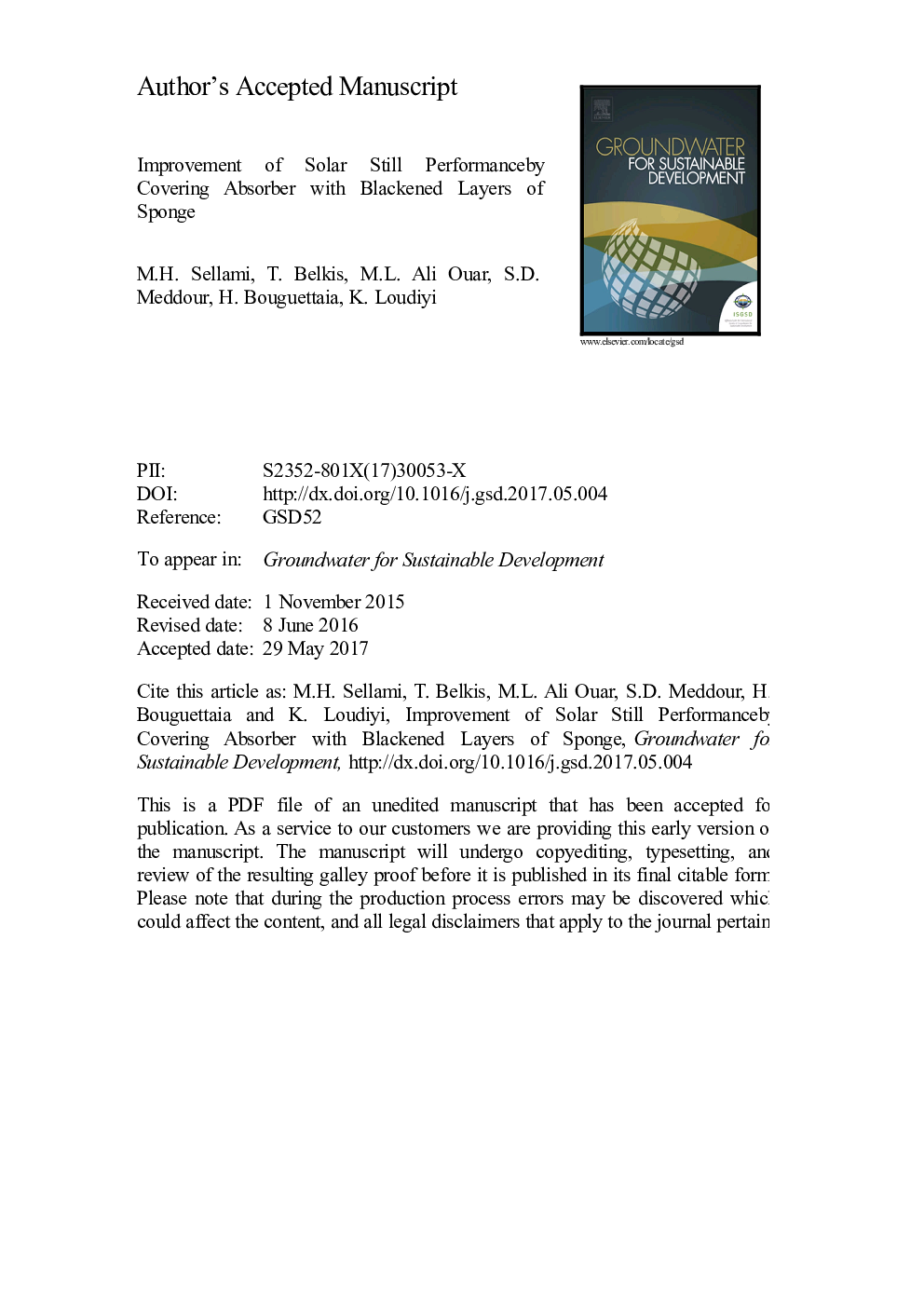| Article ID | Journal | Published Year | Pages | File Type |
|---|---|---|---|---|
| 5757193 | Groundwater for Sustainable Development | 2017 | 17 Pages |
Abstract
Algeria has been listed among top countries affected by a shortage of fresh drinkable water. Solar desalination can be used to produce fresh water from brackish water to supply isolated, low-density, population areas located in southern Algeria where solar energy and underground saline water are abundant. This article aims to improve the yield of a solar still by improving absorber performance through the use of an added inner heat storage system. To do this, we tested covering the absorber surface with layers of blackened sponge. The resultant heat storage is used to keep the operating temperature of the absorber high enough to produce distilled water when solar irradiance is low or during night time. Four small-scale solar powered distillation pilot units were set up and operated. The experiments carried out in the “Process Engineering Laboratory of Ouargla University” studied the effect of sponge thickness on the productivity of the solar still. The results obtained showed that a 0.5Â cm sponge thickness increased the yield by 57.77% i.e. 58%, relative to the baseline case (i.e. with no blackened sponge added). In contrast, asponge thickness of 1.0Â cm resulted in a yield improvement of only 23.03%, whereas a sponge thickness of 1.5Â cm resulted in a decreased yield of 29.95% i.e. 30% (relative to the baseline case).
Related Topics
Life Sciences
Environmental Science
Pollution
Authors
M.H. Sellami, T. Belkis, M.L. Aliouar, S.D. Meddour, H. Bouguettaia, K. Loudiyi,
